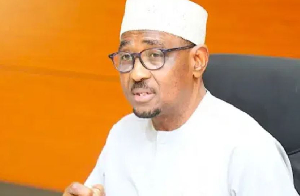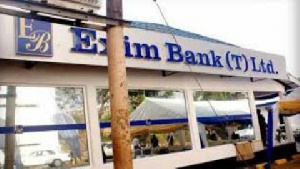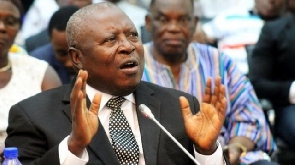The newly established Ghana Export Import Bank (Ghana EXIM) can boost exports and reduce country’s the balance of trade deficit, except that it has to be properly structured and well-funded, Franklin Belnye, an advisor to the Governor of the Bank of Ghana, has said.
“We need to review the loans thoroughly and make sure projects being supported are viable and when we grant credit, they are used for the purposes they were taken and the results must show,” he said in an interview with the B&FT.
With total imports outstripping total exports for more than three decades, Ghana’s total exports as at December 2015 rose to US$10.36billion as against an import of US$13.47billion.
This resulted in a total deficit of US$3.11billion, representing 8.3percent of GDP.
In August 2016, the nation’s total exports stood at US$6.79billion whiles imports stood at US$8.78billion, leading to a total deficit of US$1.98billion, which represents 4.6percent of GDP.
This consistent deficit, according to Mr. Belnye, can be significantly reduced and turned around if the Ghana EXIM Bank is well managed.
“I do know that our imports exceed exports, but what I think is important is that we move away from reliance on the traditional exports of gold, cocoa and oil and grow the non traditional exports products. Basically we need to expand, not just the volume, but the quality of our export.
Mr. Belnye is, however, worried that quasi-government financial institutions tend to suffer from high cases of credit defaults, which cripple them and bring their efforts to naught.
“The problem we have is that sometimes these state supported institutions suffer a lot of default which cripples the whole process,” he added.
If that challenge is overcome, he believes the Ghana EXIM will help expand the country’s export base by investing in knowledge, infrastructure and promotional services for the export sector.
He is also hopeful Ghana Exim “will be able to lend in the medium to long term which the traditional banks cannot do due to their liabilities, which are short term.”
Parliament passed the Ghana Export-Import Bank bill in the first quarter of this year, and was followed by the swearing in of a board of directors in July.
The new bank is an amalgamation of the Export Finance Company Limited (EFCL), Eximguaranty Company Limited (ECL) and the Export Development and Agricultural Investment Fund (EDAIF).
According to the law establishing it, Ghana EXIM will be a non-deposit-taking institution that acts as an intermediary between national governments and exporters to issue export financing.
Finance Minister, Seth Terkper, recently said the aim of establishing the Ghana EXIM, as a quasi-government institution, is to create an institution that consolidates past efforts and becomes the key engine for developing Ghana’s export activities.
Business News of Wednesday, 28 September 2016
Source: B&FT
Exim Bank can be transformative - BoG advisor
Africa












